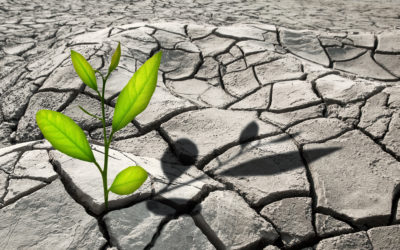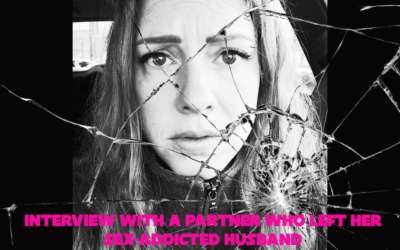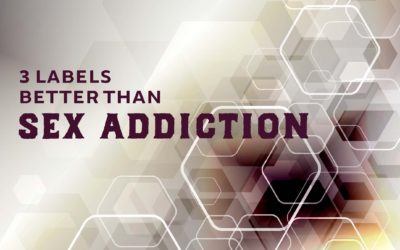Highlights
- Level one accountability focuses on reporting
- To truly be successful, we need level two accountability, which focuses ownership that drives you to create results.
- Second level accountability is only possible through self-love, operationalized through rigorous self-case that is realized through a plan.
Elevating and Evolving Your Accountability:
How to be accountable to YOU!
Accountability.
That word means different things to different people.
One of the most common for those in recovery had to do with an accountability partner, which is someone that you are obligated to be honest with about your behavior. Accountability partners are critically important to recovery. In fact, one of the benefits of 12 Step Program is the community that’s formed and the accountability that people have to each other, knowing they’re going to have to report.
But, that’s level one accountability.
Knowing you have someone else that you need to report to.
That’s level one.
I want to give you a framework for elevating your accountability to level two and beyond.
Ask yourself this question: Has your accountability evolved to a place where you are accountable to you? This question forces you to bring awareness to your reliance on other people to make sure you do what you need to do. If that reliance is higher than your motivation, then you need to elevate your accountability game, and I want to help you do that in a really big way.
What is accountability?
Webster defines it as ‘having to report, explain or justify; being answerable, responsible.’
Here’s another definition that I love: ‘A personal choice to rise above one’s circumstances and demonstrate the ownership necessary for achieving desired results. To see it, own it, solve it and do it.’
Think about those two definitions and the role that accountability is playing in your life. Is your accountability, as you define it, a sense of ownership or is it primarily driven by your fear of exposure, fear of failing someone else?
So many of you are relying on your partners for accountability and that, long-term, is inherently harmful. Long-term that’s inherently harmful. To the extent that you are relying on anybody besides your drive, your willingness, your action because you want it. You want a better you. You’re going to continue to struggle in a significant way.
Plan To Elevate Your Accountability
So if you’re convinced that you need to elevate your accountability, let’s talk about how to make that happen. I am going to outline three steps towards accountability that will drive long-term, sustainable results.
Ultimately, your accountability – the ownership for results, that seeing it, owning it, solving it, doing it – must rest upon your shoulders. Not because you are doing it for someone else, but because you are good enough! Because you deserve it!
Self-Love – Step one in these three steps towards enhanced accountability is self-love. When you can, take a good look at yourself in a mirror and answer this question:
Do you love yourself?
What does it mean to love yourself?
We can easily say we love ourselves. We can easily pretend we love ourselves. And that’s easy to do because there’s a hyper-masculine bias against this idea of self-love. It’s easier to ignore this mushy stuff and focus on just not doing ‘the thing.’ But the driver of your addiction is that not-good-enough part of you; that part of you that you have a hard time loving; that part of you that lacks love for self. So, be honest. Do you love yourself? Every part of yourself? How do you love yourself?
Self-Care – Step two in this plan to greater accountability is rigorous self-care. The way you love yourself is through rigorous self-care.
Don’t pretend that you want to be successful, that you want a better life, that you want to achieve the significantly profound way if you aren’t going to do the following things.
Shatter that illusion. The sooner you shatter this notion that your diet isn’t inexorably intertwined with your problem, the better off you’re going to be.
You prove that you love yourself, that you want the best for yourself, when you demonstrate it by taking care of yourself.
You love yourself when you eat well.
You love yourself when you sleep well.
You love yourself by hydrating yourself well.
You love yourself when you exercise.
You love yourself when you take a moment, even a minute, to calm the chattering mind and practice mindfulness.
Your quest to true accountability, accountability for yourself, comes from self-love practiced through rigorous self-care.
The Plan – Step three is the plan, a simple plan that you can use to elevate your accountability.
This plan is based upon the premise that what gets measured gets done.
If, as we’ve just discussed, the operationalization of self-love comes through rigorous self-care, why don’t we put a scorecard in place to see how well you are performing in the areas I outlined in step two? If you’ve been around me for long you know I call these the fundamental five; eating, sleeping, drinking, exercising and practicing mindfulness.
Take those five areas and measure your performance in them using a four-point scale. Do it every day for seven days. If you want to elevate your accountability to you, then check to see how you’re performing in these five critical areas.
A score of four means that you are very happy with your performance in that subject.
A score of three means that you are happy with your performance in that subject.
A score of two means that you are unhappy with your performance in that subject.
A score of one means you are very unhappy with your performance in that subject.
Let’s pause here to notice there is no average. There is no 2.5. There is no mediocrity. We’re moving towards success or away from success. No middle ground. No more illusion of status quo.
Next step, identify what actions, or inactions, you executed that created that result in each area.
For example, I got a four in eating. I eat incredibly well, didn’t deviate from my diet, that’s a four. Nailed it. But let’s say I scored a one in mindfulness because, well, I didn’t do shit. Didn’t meditate, didn’t reflect, didn’t stop, didn’t do yoga, didn’t do any of the things that I need to do to keep myself in check. I got a one because I am very unhappy with my performance in the mindfulness category.
In order for there to be accountability there needs to be love for self, operationalized through rigorous self-care, through a plan.
Through a plan.
This is your plan.
If you say success is important to you, if you say that your sobriety, your sanity is important to you and you want to stop doing this thing, you have to start doing something else.
Bring awareness to these areas in your life and start driving true accountability that rests in the belief that you are good enough, that you are worthy, that you are significant, and that you deserve love. And give that love to yourself.
This process is absolutely critical to breaking free.
Fear & Loathing In Sex Addiction: How The Fear Habit Is Holding You Back
Listen to "What Are Your Habits Around Fear? And What To Do About It!" on Spreaker. Read an Edited Transcript of the Show: What I want to talk about today is the habits around fear. How is fear manifesting itself in your life? We all know we're afraid....
This Non 12-Step Recovery for Drug-Alcohol Addictions Too?
Can this non 12-Step approach to porn & sex addiction recovery from The Mindful Habit also work for those with drug & alcohol addictions?So, for the record, I’m not a sex or pornography addict. I’m not into hookers or sex chats or videos or anything really...
Elevating Sex Addiction Treatment: An Interview with Bill Herring
In this post, I interview Bill Herring, a clinical social worker with a private psychotherapy practice in Atlanta. In addition to providing general psychotherapy services, Bill is a specialist in treating noncriminal problematic sexual behaviors. He’s a former board...
Mindful Masturbation: A Christian Perspective on Masturbation
In this episode of "Sex Addictions and Porn Afflictions," Craig Perra, certified professional coach and Founder of the "Mindful Habit to End Compulsive Behavior," walks you through the process of confronting and talking to that voice in your head -- your addict...
The Arrogance of the Sex Addict: Donald Trump and Stormy Daniels and More
Highlights Craig reflects on news about Donald Trump’s payout to a porn star and a close friend’s arrest How low can our compulsive sexual behavior take us? What risks are we creating in our lives by continuing in our behavior? The Arrogance of the Sex Addict: Donald...
Busted for Sexting a Minor: An Interview with Joshua Shea
Highlight Craig interviews Joshua Shea, author of The Addiction Nobody Will Talk About Joshua was arrested for texting an underage girl and or possession of underage porn Unhealthy sexuality will take us to darker places than we ever imagine Busted for Sexting a Minor...
Behind the Mask of the Sexual Harasser
Highlights Sexual harassers come across as cocky and powerful. The principle of subpersonalities can help us see and understand the part of the harasser that acts in inappropriate ways. These different subpersonality of the sexual harasser usually feels insignificant...
I Behaved Like Harvey Weinstein
Highlights The allegations against Harvey Weinstein include multiple accounts of sexual harassment, even sexual assault. Craig reflects on ways he has acted like Harvey Weinstein. This situation should force all men to look at our own behavior How have we violated...
Interview with a Partner Who Left Her Sex-Addicted Husband
Highlights Craig interviews Alison, a partner who left her sex-addicted husband. Describes her experience of being gaslighted by her husband. Through research, Alison found help with The Mindful Habit. Ultimately, she made the decision to leave her husband and is now...
3 Labels Better Than “Sex Addiction”
Highlights We need labels that help us move beyond “sex addiction” and “porn addiction.” Other labels are important because “addiction” is limiting. Two important issues are intimacy and authenticity. Acknowledging the nature of your behavior is as important step...













